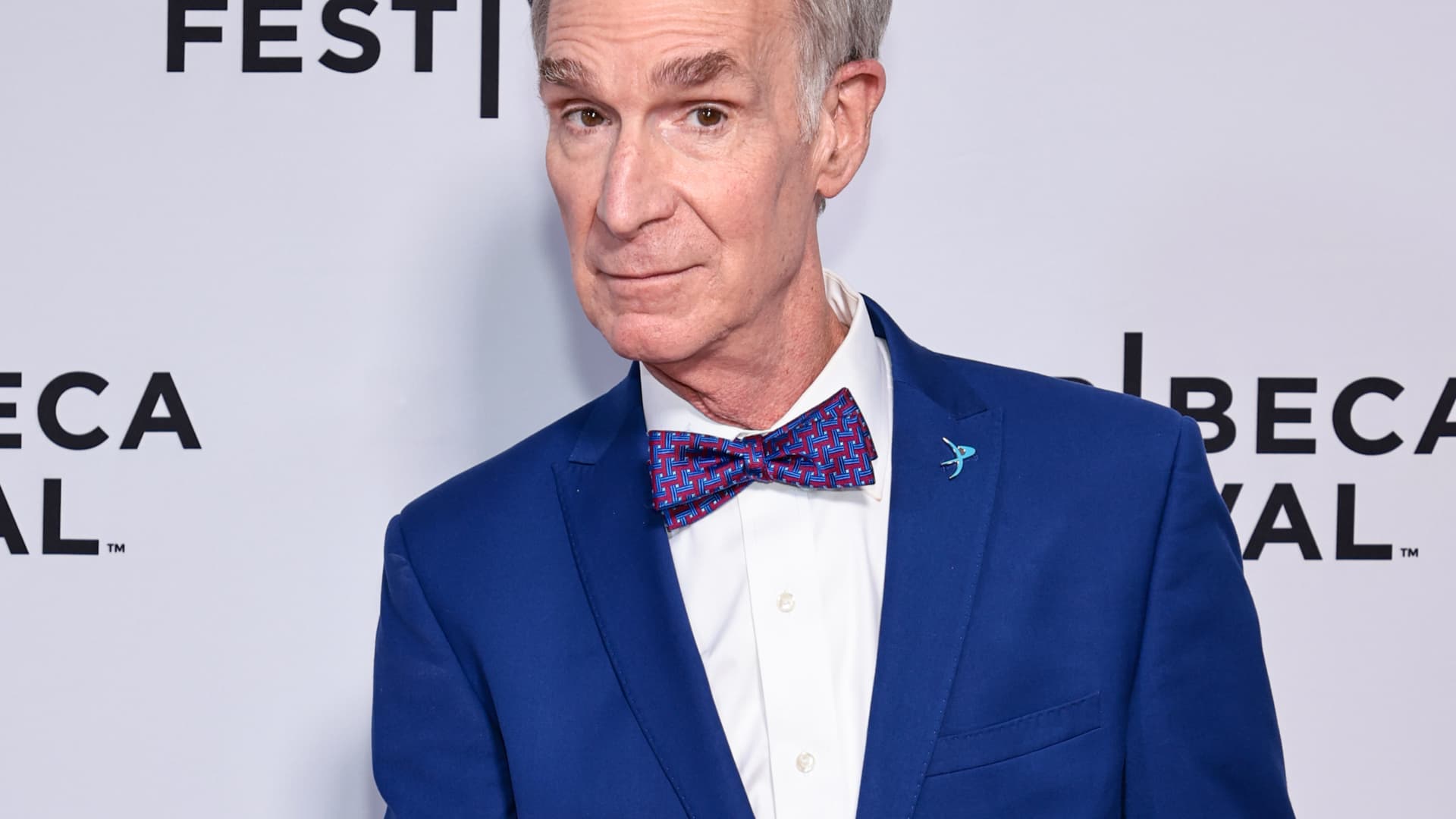Products You May Like
The best way to save the planet isn’t necessarily recycling – it’s stepping into a voting booth.
That’s according to celebrity science educator Bill Nye, television’s “The Science Guy,” who spoke at the Aspen Ideas Festival in Aspen, Colorado, last week. “To be sure, recycling the bottles, don’t throw the plastic away [and] compost your compostable things … Start there,” Nye said. “[But] if you want to do one thing about climate change: Vote.”
“And, if you’re a kid and you can’t vote yet, make sure your parents vote,” Nye, 66, added. “Hassle them.”
Nye spoke just hours after the U.S. Supreme Court handed down a new landmark ruling that limits the Environmental Protection Agency’s power to regulate greenhouse gas emissions from U.S. power plants. President Biden called the ruling, which is expected to make it more difficult for the U.S. to cut its carbon emissions, a “devastating decision.”
Nye called the predominantly conservative Supreme Court “a controversial bunch,” and described the ruling as an act of “human negligence.” He noted that the ruling places a greater burden on the U.S. Congress and state legislatures to pass stronger laws aimed at protecting the environment — though, in some cases, enforcing those laws can be complicated.
“What we’ve got to do is pass better laws,” Nye said. “The Supreme Court does what the law says, so we just have to pass laws that are more direct, more specific, more in everybody’s best interest.”
Nye pointed to laws that would attach fees or taxes to carbon emissions as examples of legislation that might move the needle on climate change, because affecting the wallets of both individuals and corporations could help curtail the sort of behavior that results in exorbitant carbon usage.
“Take the environment into account [when voting],” he said. “Don’t just vote for, with respect, dumb stuff. Vote for better laws to control climate change.”
The consequences of inaction, Nye warned, could be severe — from more powerful storm systems to other damaging natural disasters. That’s also the subject of his upcoming streaming series, “The End Is Nye,” which is set to debut on Peacock next month. It’ll tackle the hypothetical fallout of various natural disasters, while exploring potential mitigation or preparation options.
At Aspen, Nye said the best solution to increasingly powerful storms is reducing greenhouse gas emissions across the globe.
“What you would do is reduce greenhouse gas emissions, so the world doesn’t get warm as fast as it’s getting warm,” he said. “The problem is the ocean is getting warm and then all of this energy that’s being stored in the ocean leads to [increased convection] and these big hurricanes.”
Nye also cited research showing that offshore wind turbines can actually slow down hurricanes — similar to a speed bump, though more financially costly. “You take the energy out of the wind and put it into electricity. It’d be cool, but it would be an enormous investment … It’s a fascinating idea,” he said.
And just in case you think solving climate change isn’t your responsibility, Nye noted that regular, everyday humans helped create this problem: With the global population ticking toward 8 billion people, up from just 3 billion when Nye was a kid in the 1960s, the science educator said “we’re having a huge effect on the world.”
“That’s the big message,” Nye said. “Humans are now the stewards of the whole thing. So we have to take the whole planet into account the whole time.”
Sign up now: Get smarter about your money and career with our weekly newsletter
Don’t miss:
Climate change hopelessness is a real condition—these experts have advice on how to cope
33-year-old who runs a multimillion-dollar start-up to help fight climate change: ‘You can be altruistic and successful’
